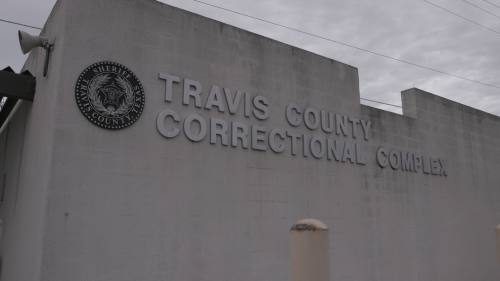County needs
While Hernandez said she plays a very small role in who enters local jails, she can positively influence how they are treated while incarcerated. “To me, that is very important, and I take that very seriously,” she said. “That is why I feel like we need the female jail facility desperately.” A 2015 needs analysis performed by CGL RicciGreene identified some inefficiencies in the county’s system and made a few recommendations on how to achieve operational efficiency, including the need for more adequate housing, enhancing delivery of services and meeting the future bed space demand. About 40 percent of the female inmate population has been diagnosed with a mental illness, and 7 percent of those have been diagnosed as acutely psychotic, according to data from the sheriff’s office. Medical and mental health populations present complex service needs and supervision challenges. Various levels of supportive living are needed to accommodate these populations, the analysis stated.Solving the problem early
Laura Wilson Slocum, practice administrator for crisis services and justice initiatives for Integral Care, the county’s mental health authority, said the organization does everything it can to engage individuals as early as possible. “Often times arrest, emergency departments and hospitals are not what is needed and is often not what is best for the community or the individual,” Slocum said. Through the program, mental health professionals are dispatched to a scene to evaluate and determine the mental stability of an individual. Integral Care’s mental health services are available through a community-based program, which allows the organization to personally meet individuals in a place convenient for them. Services do not have to be through law enforcement, Slocum said. “I am all for programs and keeping people from going to jail, but if we’re going to have diversion programs it has to be all the arresting agencies that are working with us in this,” Hernandez said. “It can’t just be on the back of the county.”Re-entering the community
After inmates complete their sentences, Hernandez said the goal is to make sure they never come back. The best way to ensure that happens is to help them focus on re-entering the community, she said. The county works with organizations that provide re-entry services such as the Austin Clubhouse, Lifeworks South Austin and El Buen Samaritano Episcopal Mission. “Oftentimes people don’t know where to start and sometimes just need an advocate offering support,” Austin Clubhouse Executive Director Joanna Linden said. “This is a place where they can get back on their feet and help realize they have a bright future.”Building a model facility
County Judge Sarah Eckhardt said research shows placing offenders in an environment that is more humane has a better result for the person in custody and for staff working with inmates. “I think all the commissioners feel that a more humane, modern facility is needed,” Eckhardt said. “But I also don’t think that there is any dissent on the commissioners court that we need to make sure that we have great diversion programs so that the criminal justice system is only as amorous as public safety demands. I don’t think these two goals are mutually exclusive. I think they are actually completely copacetic.”Re-entering the community
Travis County Sheriff Sally Hernandez said her department encourages former inmates to sign up for programs that can help them receive the support needed for a fresh start.Integral Care The helpline is staffed by mental health professionals 24 hours a day, seven days a week. Staff provides around-the-clock crisis support as well as access to the Integral Care program. 24/7 Crisis Helpline: 512-472-HELP (4357)
Austin Clubhouse The organization offers a supportive community for people diagnosed with mental illnesses. Services include transitional employment, supported employment and independent employment as well as social events. 610 E. 45th St., Austin. 512-925-5877
El Buen Samaritano Episcopal Mission: Wallace Mallory Clinic The mission provides general health care for children and adults of all ages. Services include general medicine, pediatrics, immunizations and more. Prenatal care, gynecological exams, family planning and behavioral health aid are also available. 7000 Woodhue Drive, Austin. 512-439-0700
Lifeworks South Austin Youth & Family Resource Center The center provides individual and family counseling for youth and adults. Services are offered on a free or sliding-scale basis. Services are provided at various offices throughout the community. 3700 S. First St., Austin. 512-735-2400





